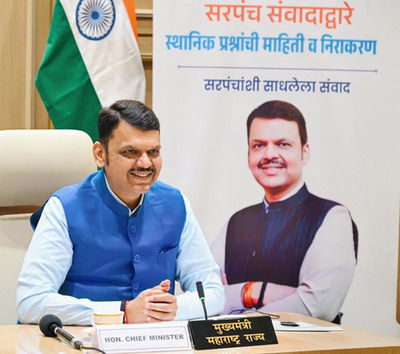In an extraordinary step underscoring the gravity of a fast-escalating cybercrime trend, the Supreme Court on Monday barred all courts from granting bail to a group of men accused of defrauding a 72-year-old Supreme Court advocate of Rs 3.29 crore through a so-called ‘digital arrest’ scam. The bench said the situation demanded nothing less than “unusual orders”.
“We have to deal with these cases sternly so that the right message is sent. An unusual phenomenon needs unusual intervention,” observed Justices Surya Kant and Joymalya Bagchi, signalling that the judiciary views the crime as a systemic threat rather than an isolated offence.
The court spelt out its concern over “digital arrest”, a rising form of cyber fraud where criminals impersonate police, government officials or court personnel using audio-video calls, coercing victims — often elderly and vulnerable — into transferring large sums of money under fabricated threats. The scam typically involves fake warrants, forged court orders and relentless psychological manipulation.
The case before the bench involved an elderly lawyer who lost her life savings to the racket. The Supreme Court Advocate on Record Association (SCAORA), which stepped in on her behalf, urged the court to intervene amid fears that the accused were about to walk free on statutory bail.
SCAORA president Vipin Nair told the bench that though the police had managed to recover over Rs 42 lakh, the process revealed “procedural vacuum and investigative paralysis”, with even a magistrate’s order directing the return of funds stalling because the bank refused to accept the deposit.
Supreme Court 'shocked' at scale of digital arrest scams, vows tough actionResponding immediately, the court directed: “Meanwhile, the suspect Vijay Khanna and other co-accused shall not be released by any court. They can approach this court for any relief.” Justice Kant reiterated the need for decisive action: “We are not against anyone's life and liberty but this case warrants unusual orders. We have to deal with these cases sternly so that the right message is sent. An unusual phenomenon needs unusual intervention.”
Nair, backed by solicitor-general Tushar Mehta, detailed how the elderly advocate had been persuaded to liquidate fixed deposits under the pressure of expertly choreographed calls. He added that cybercriminals were specifically targeting older people and emptying their savings.
Justice Kant assured the counsel, “Don't worry, we will do something. Some directions are needed.”
The court said wide-ranging guidelines on the issue were in the pipeline and would be an “eye-opener for many agencies”. It asked amicus curiae advocate N.S. Nappinai to prepare for nationwide outreach: she would soon be asked to issue a public advertisement inviting victims of digital arrest to contact her so that the actual scale of the crime can be quantified.
The bench also took note of concerns raised about India not ratifying a key United Nations cybercrime treaty that could help in tracing fraud networks operating across borders. Justice Kant asked the solicitor-general to examine the issue. The matter will next be heard on 24 November.
Mamata writes to Shah, seeks action against social media content, cybercrimeThe Supreme Court has been flagging its alarm for weeks. On 3 November, it said digital arrest must be dealt with “with an iron hand”, after reviewing sealed-cover reports from the Ministry of Home Affairs and the CBI. The documents suggested that over Rs 3,000 crore had been extracted from victims nationwide, many of them senior citizens. The CBI, the court noted, had traced the operations to offshore “scam compounds” with coordinated financial, technical and human support systems.
Monday’s orders stem from a letter written by another elderly woman, from Ambala in Haryana, describing how she and her husband were virtually “digitally arrested” and extorted of Rs 1.05 crore by criminals impersonating officials of the CBI, ED and the judiciary through audio and video calls. The fraudsters used forged judicial orders to intimidate the couple.
On 27 October, the court indicated that the CBI may be entrusted with the nationwide probe, given the scale and cross-border reach of the syndicates. It asked for details of FIRs across states and said it would supervise the investigation and issue further directions as required.
Earlier, on 17 October, the apex court warned that the surge in such cases strikes at the “very foundation” of public faith in the justice system. It noted that forging Supreme Court or high court orders to terrorise citizens into compliance represented a grave threat that could not be treated as ordinary cheating or routine cybercrime.
With PTI inputs
-
Maha govt's football initiative to provide support to rural athletes, Tiger Shroff named as brand ambassador

-
Maha govt extends e-KYC deadline for Ladki Bahin Yojana till Dec

-
Suniel Shetty's Son Ahan Shetty Opens Up On Claims Of Losing Movies Due To High Entourage Costs

-
Popular Ollywood Singer Humane Sagar No More

-
Saudi road accident: RJD leaders express grief over pilgrim deaths
